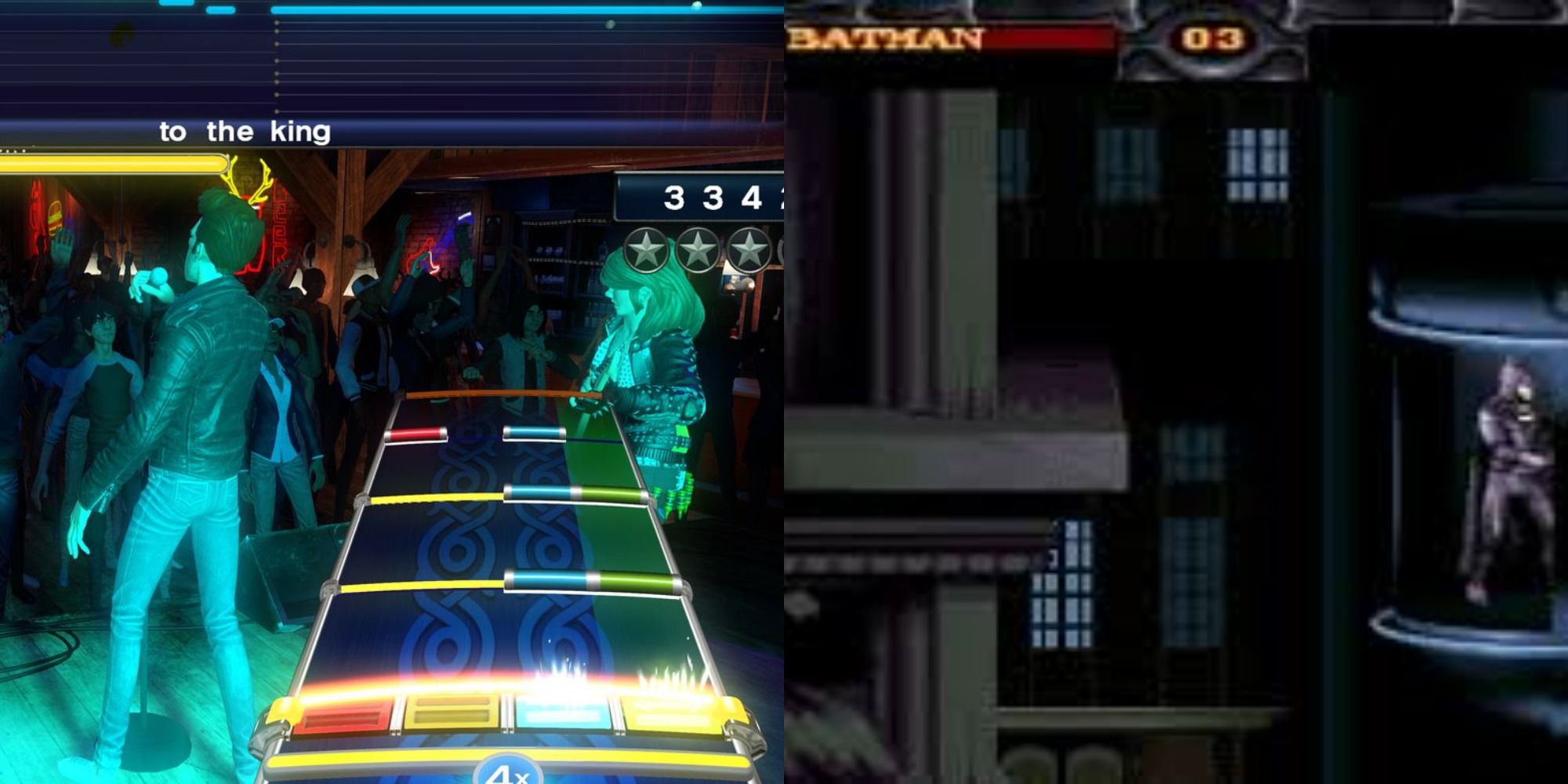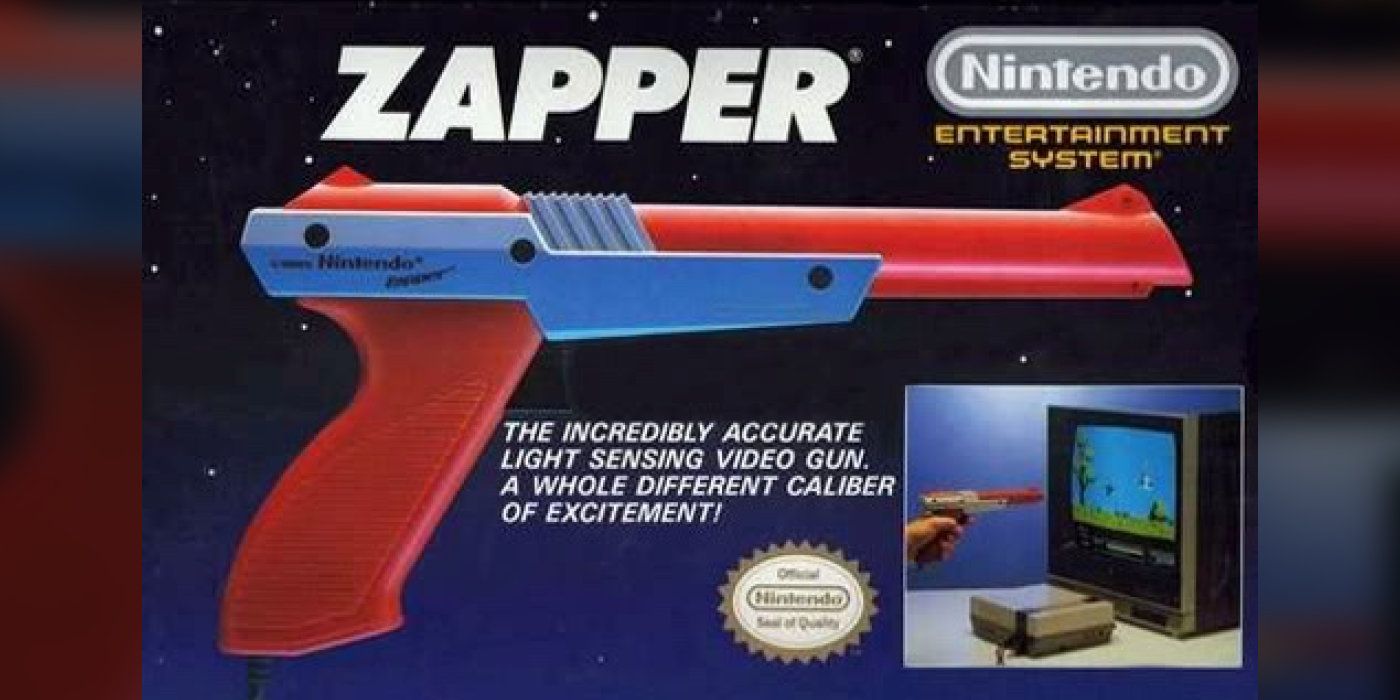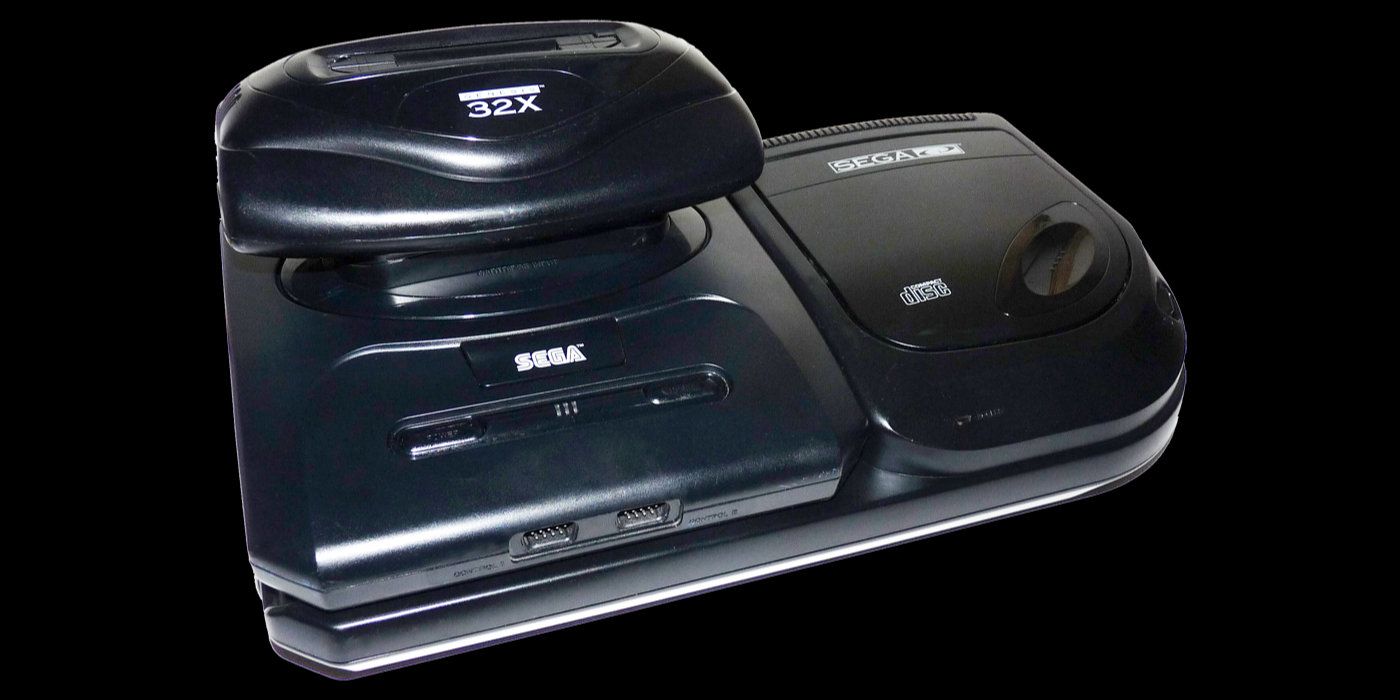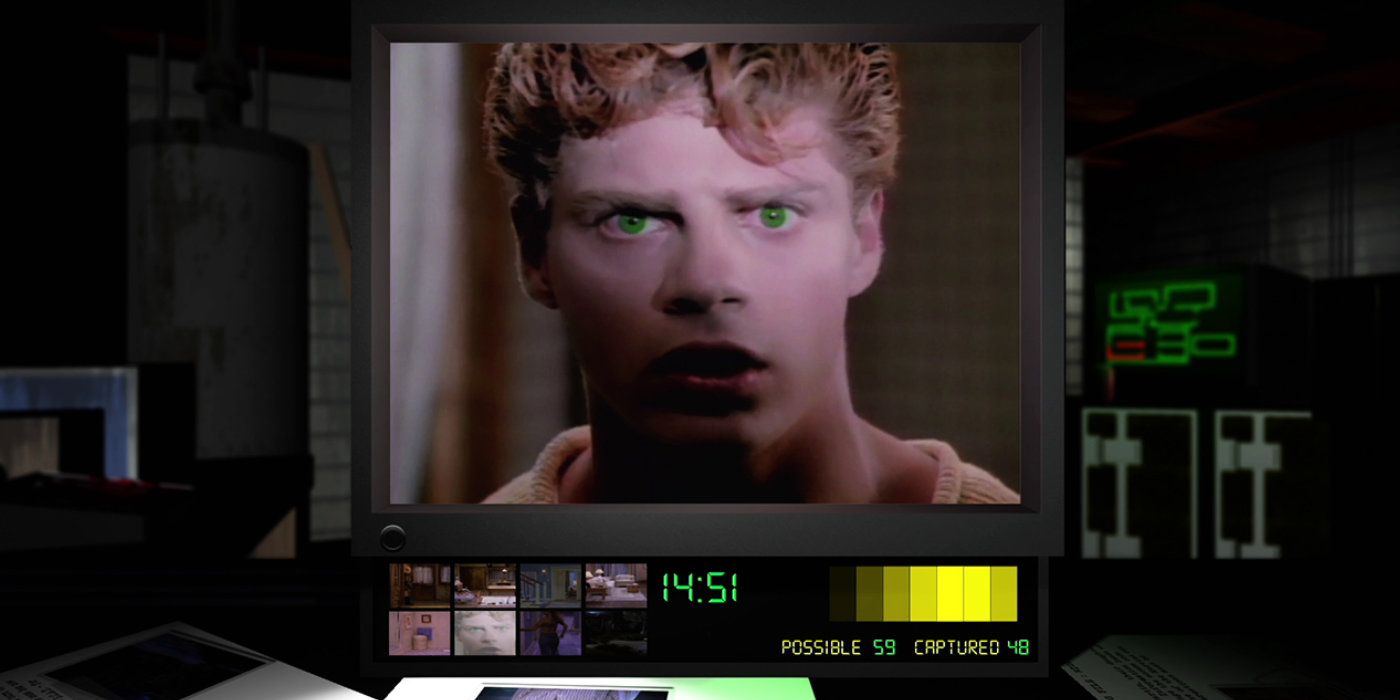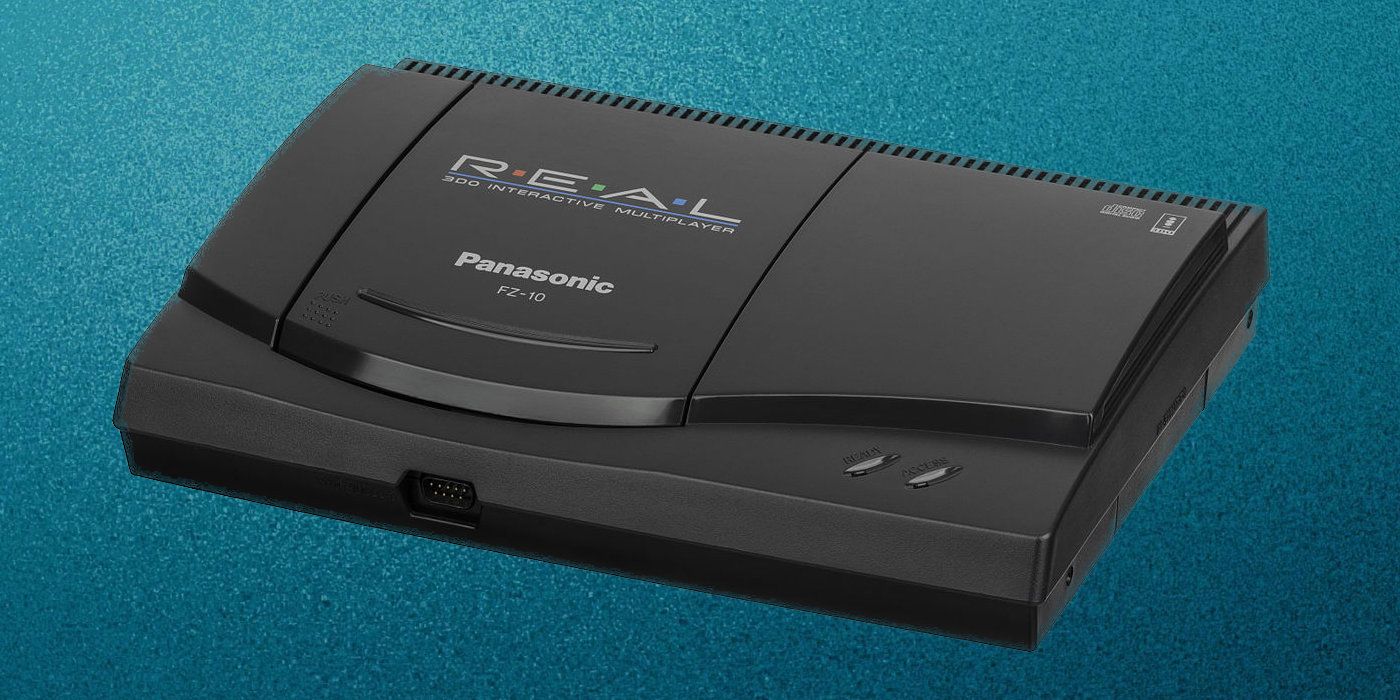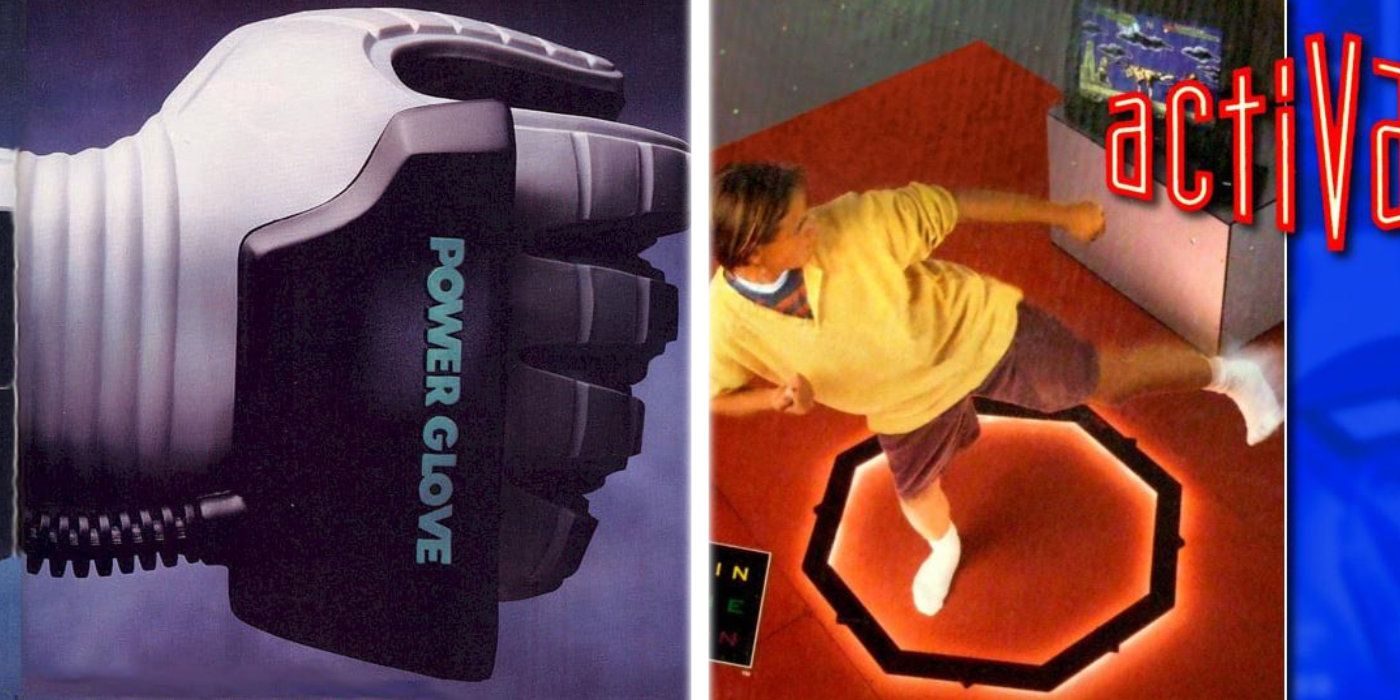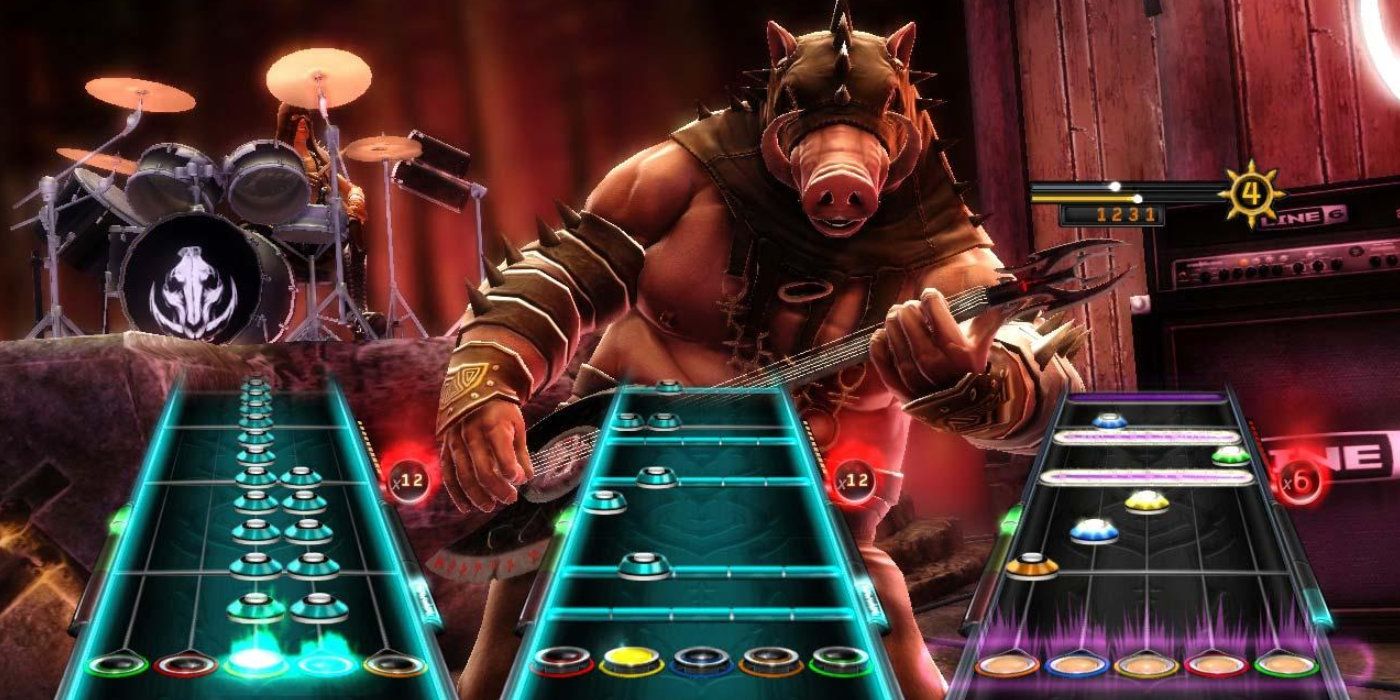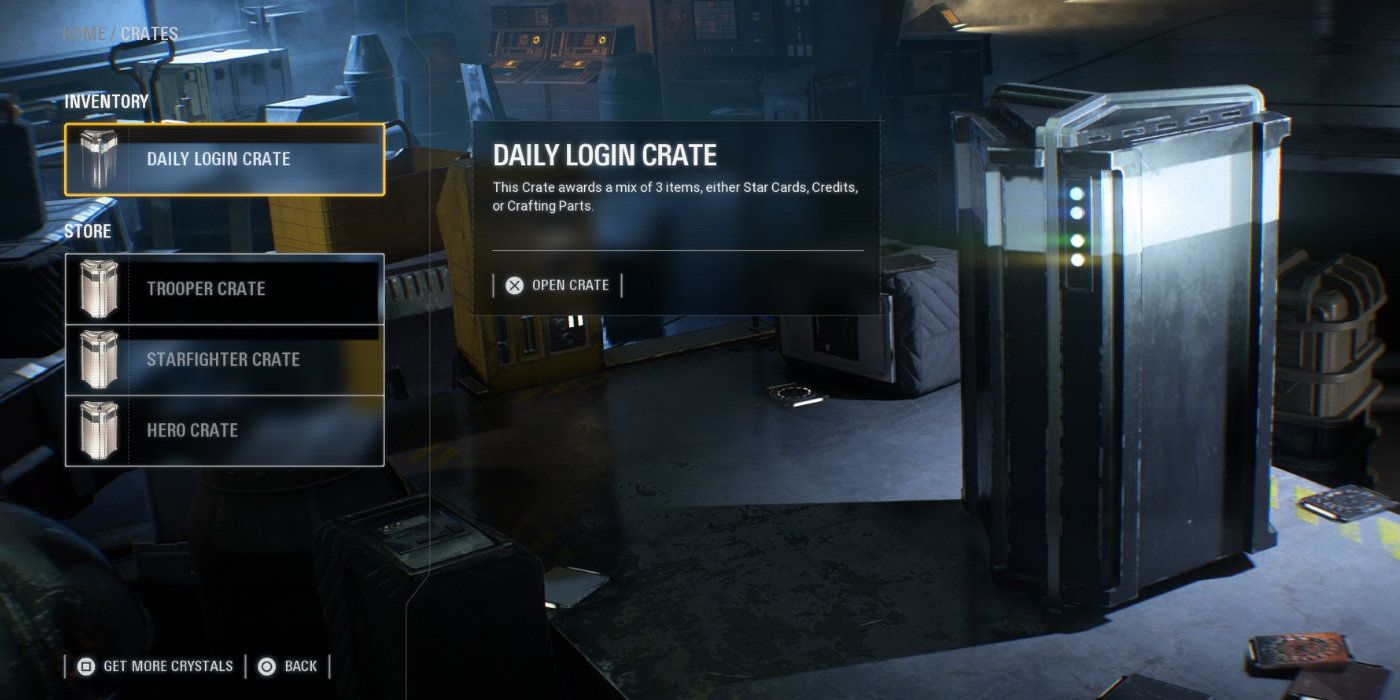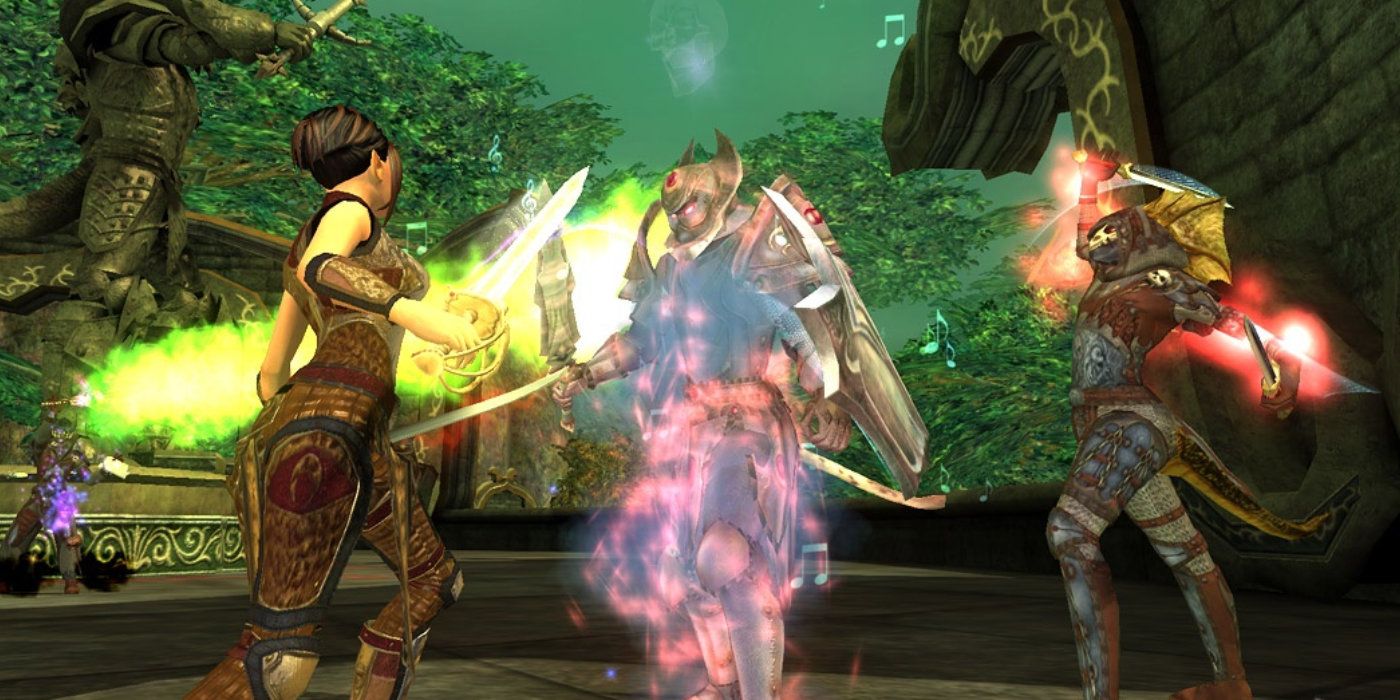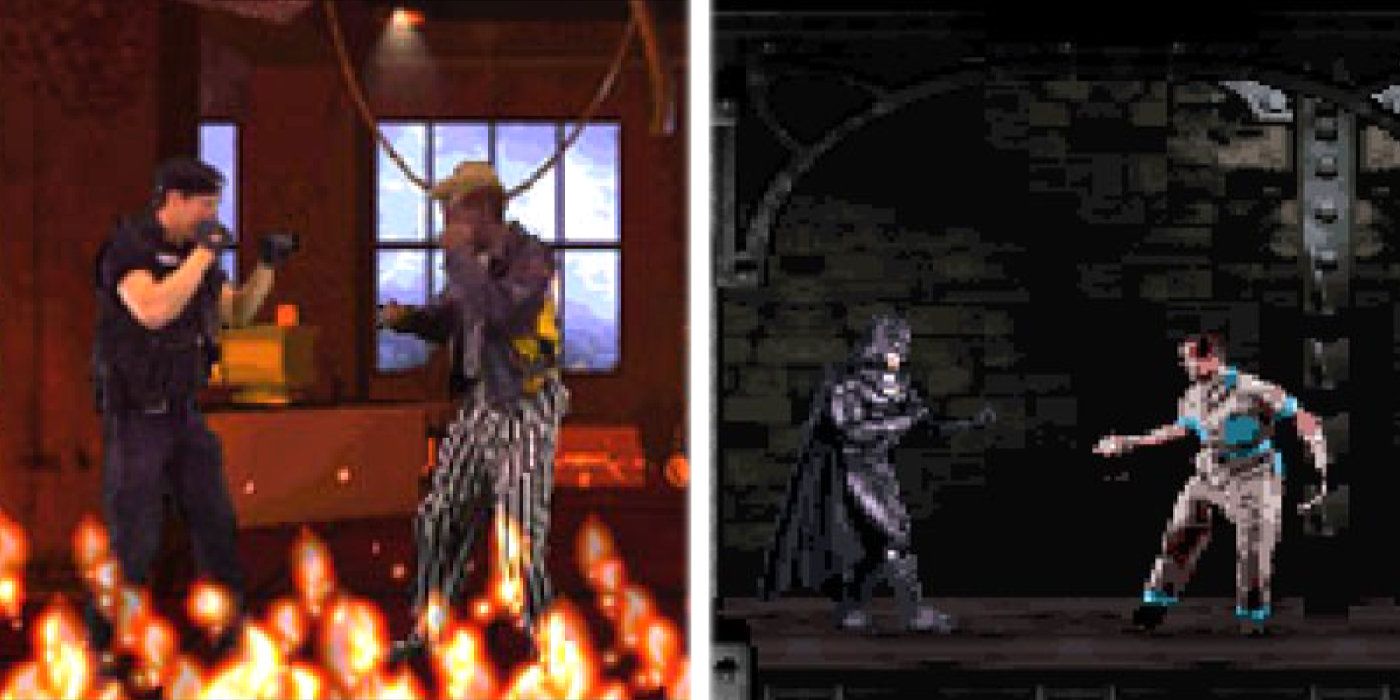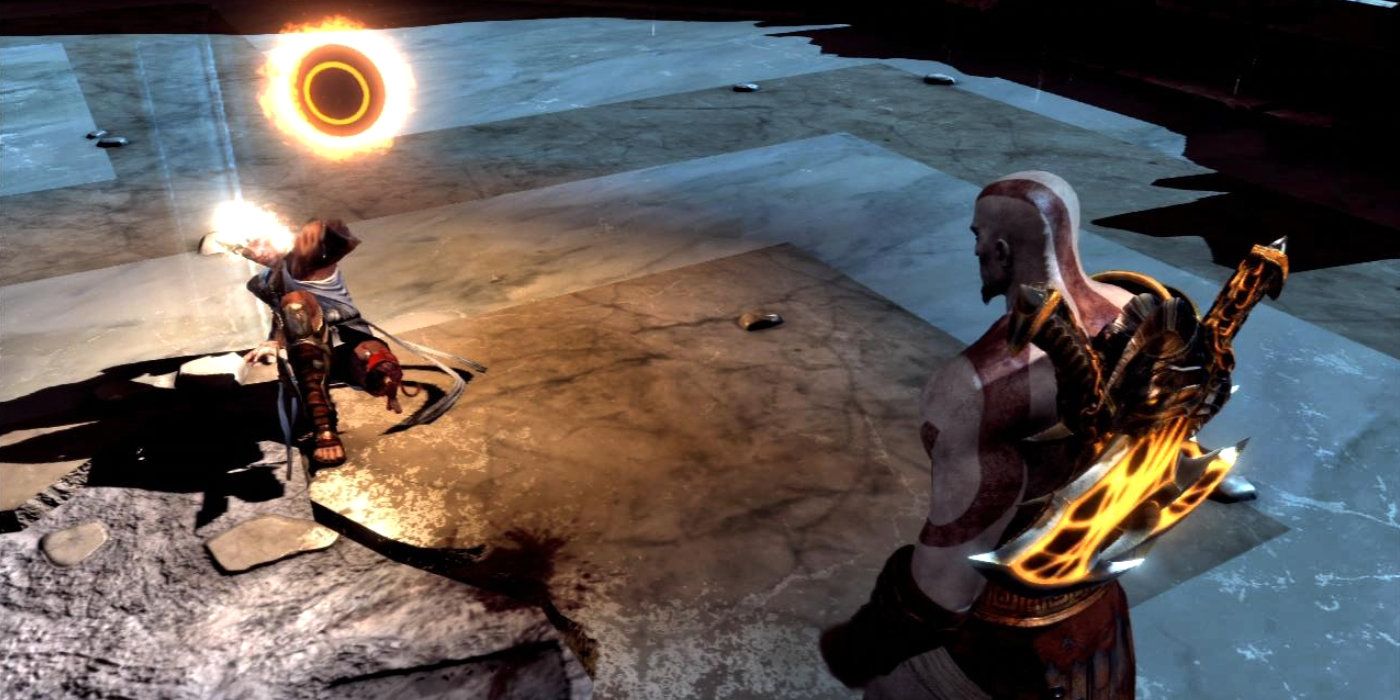Like any successful business model raking in billions of dollars, there's bound to be overkill. Video games are no exception. While there have been a few risks that have paid off, there have also been some products that have since been sent to the scrap yard for their failures. Although the spirit of some of these rejected projects continues to live on in niche corners of the video game market, the majority of gamers have moved on and forgotten about them.
One can't fault the developers for trying, but a little more foresight could have gone a long way and turned a potentially great idea away from the chasm of oblivion.
Light Guns
The infamous light gun cropped up in the first few generations of video game consoles, only to die quickly thereafter. The only company that truly made a splash with the light gun formula was Nintendo after they released their NES console with one as a pack-in item. The only game that truly managed to make any sort of a splash was Duck Hunt. Unfortunately, after that, there were few light gun titles ever produced for the system.
Sega tried a similar tactic with their Master System, but it too didn't last very long. Both companies entered the 16-Bit age with new light guns in the form of Nintendo's Super Scope 6 and Sega's Menacer. Once again, they both fell into obscurity in short order. Since that time, light guns have taken hit after hit, most notably with the adoption of LCD TV screens. They are now special order items from third party manufacturers.
Console Add-Ons
There was a time when it was considered cool to buy a separate add-on to extend the life of a person's console. Sega was the first company to really go full-tilt on the idea. First with the Sega CD, followed by the ill-fated 32X. Both were designed to clamp onto the existing Sega Genesis console as the primary unit, offering a wider range of games.
Once again, the product failed to impress players due to the fact that the games were largely lackluster. Nintendo had similar plans for its SNES console; an idea that would actually give rise to the Sony PlayStation. Nowadays, console manufacturers are keen to sell upgraded versions of their consoles mid-cycle, rather than produce add-ons. Thankfully, they learned from the failure of this short-lived fad.
FMV Games
At one point, titles featuring full-motion video were considered the next evolution in video games. It didn't take long to realize that pre-recorded videos didn't wed well to play mechanics and the result was a disappointing string of games with very little interactivity.
Sewer Shark, Tomcat Alley, Night Trap and It Came From The Desert are all prime examples of why this fad fizzled out as quickly as it started. The window of their release was short, and when the PlayStation was unveiled in 1994, everyone quickly figured out that polygons, not FMV, were the future of gaming.
Multimedia Machines
Some console manufacturers thought it would be a great idea to create a gaming console that could also serve as an educational multimedia machine. Everyone else referred to that as a PC, but make no mistake, this was a fad at one point. The result was a string of failed consoles that unsuccessfully failed to surpass its successors.
The 3DO really did give it the old college try, and it did have the best chance of succeeding. However, its ridiculously high price tag of $699 US (circa 1994, no less) was an instant fail. Other companies also pushed their luck with consoles like the CD-i ($1000 US), suffering similar fates in the process.
Lackluster Peripherals
At specific points in gaming history, many companies decided it would be a great idea to create specialty peripherals designed to appeal to a particular kind of game. These took on some truly bizarre, yet no less useless designs that added practically nothing to the console (nor did they inspire developers to create new titles for them).
Think Nintendo's Power Glove, Sega's Activator, the Xbox Kinect, or the Tony Hawk skateboard controller. Only one company managed to make any sort of headway into the specialty peripheral market, and that was Nintendo, with their Wii Fit line. Sadly, even they missed the boat.
Band Games
Not all music games have suffered terrible fates. Indeed, Dance Dance Revolution is one example of how rhythm-based games can spark a worldwide fad phenomenon that keeps on paying dividends. Sadly, other promising prospects have since gone the way of the dinosaur.
The single biggest example of this is home console band games like Guitar Hero, and its rival franchise Rock Band. Though the latter would outlive the former, this entire subgenre of gaming has since petered out and fallen into obscurity, with instrument-based controllers piled high in landfills from east to west.
Loot Boxes
It appears that creators failed to predict the inevitable backlash that would follow in its wake when they proposed this idea. Loot boxes have generated so much controversy in the video game world that the issue has even been taken before the United States Congress.
Sheer, unmitigated greed on the part of developers and producers is what led to this debacle, but it all came to a grinding halt with the disastrous launch of Star Wars: Battlefront II, which broke the camel's back. Somehow, DICE managed to turn the game around and make it a fan favorite, but loot boxes have since been steadily dying out, or otherwise neutered into far less antagonistic forms.
MMORPGs
This does not suggest that MMORPGs are a fad that has long since gone away, but they have changed drastically from their earliest forms. There was a time when the notion of entering a sprawling, massive game world populated by thousands of other players to share adventures with was a novel idea. Many got lost in these worlds, sometimes to the detriment of their own health.
However, a few years later, gamers began getting tired of MMORPG mechanics, grinding and griefing. Many began to question the logic of paying a monthly subscription fee for a net loss experience, and a ton of MMORPGs began adopting free-to-play models. Only a few titles are still reaping rewards, while others have fallen under the might of the battle royale craze, which is where the real action is nowadays.
Movie Adaptations
Once upon a time, Hollywood blockbusters would see video game tie-ins designed to try and capitalize on the media buzz. Sadly, most of these titles failed to impress many players as they felt that these games weren't worthy of the franchises they represented.
As such, movie adaptations have largely died out. However, they were replaced with franchise adaptations, which have seen a much better critical reception. Think titles like Friday the 13th, Mad Max and The Warriors. Each of these games came out years after the films were released, but they didn't attempt to tie in to any one particular chapter. With time, patience and care, video game movie adaptations can work.
Quicktime Events
This is not in reference to the Apple movie playback software, but rather those pre-scripted "press this button now" moments made so famous by titles like God Of War. They were famous for five minutes, before every other company jumped on the bandwagon, and started implementing them in their own games.
Nowadays, Quicktime Events are overdone (to death), and their over-simplified nature makes them feel out of place. Hopefully, they are replaced by the gradual inclusion and adoption of haptic feedback technology, which should be pioneered with the PlayStation 5.

